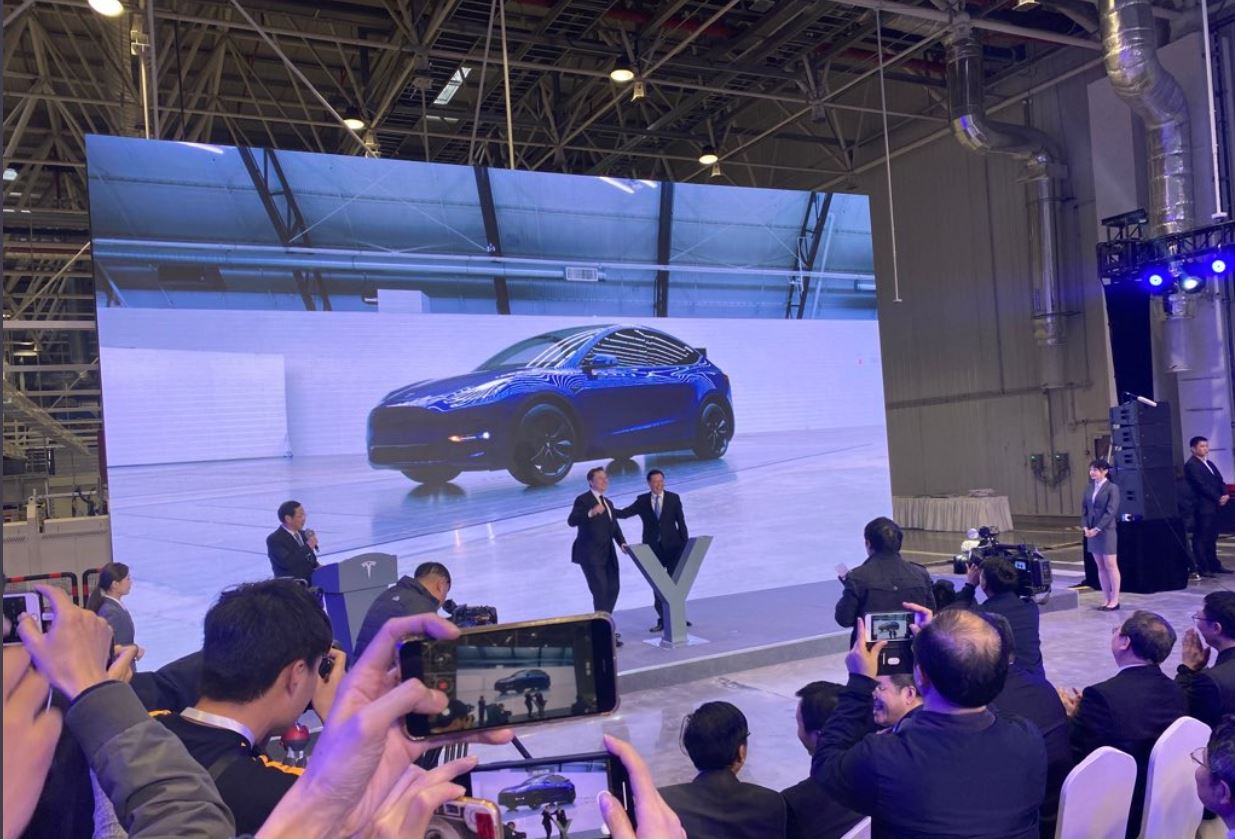
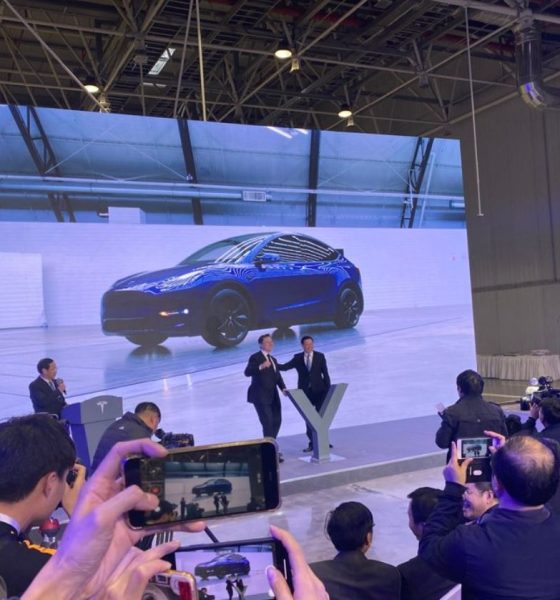
News
Tesla starts Model 3 customer deliveries in China, formally launches Model Y program
Tesla officially opened the floodgates in China as it made its first mass delivery of locally-made Model 3 on Tuesday during an event at Gigafactory 3 in Shanghai. The electric car maker also announced the kick-off of its Model Y program in the country.
CEO Elon Musk flew in from the United States to personally hand over Made-in-China Model 3s to the first local customers. This is a big milestone for Tesla as the MIC Model 3s are the first units delivered by Tesla’s first factory outside of the United States.
“Ultimately Model Y will have more demand than probably all of the other Tesla cars combined. Model Y will also have advanced manufacturing technologies that we will reveal in the future,” Musk said.
Musk also expressed his gratitude to the Chinese government, the Tesla China team, and all of the customers in the country. At one point during the ceremonies, Musk even showed some dance moves and emphasized how the company knows how to have fun despite all the work that needs to be done. Musk also did not forget to thank the early adopters who paid a premium to own their Teslas.
During a speech at the event, the Tesla chief also disclosed plans to have a Tesla engineering center in China that will design vehicles for the local market and the rest of the globe.
With the kick-off of the Model Y program in China, Tesla now has a powerful one-two punch combination that can potentially deal heavy blows to other automotive giants operating in the country. The Model 3 sedans will attract those looking for an entry-level electric vehicle while the Model Y will appeal to those looking for an all-electric crossover that offers more space at a practical price.
Tesla will be facing no pushovers in the local market. Daimler has released the Mercedes-Benz EQC in China and sells it for about $83,100 while Audi has rolled out the e-tron in late 2019 and plans to introduce more green vehicles in the next 24 months. BMW is also planning to join the EV rumble with its iX3 crossover next year.
The first public MIC Model delivery event happened exactly one year after the first wholly-owned car factory by a foreigner in China broke ground. Gigafactory 3 achieved the amazing feat of producing its first vehicles in just 10 months and making a symbolic delivery to local Tesla employees before the end of 2019.
Meanwhile, the production of the Model Y alongside the Model 3 will not be an issue for Tesla since these vehicles share 75% of their parts. Tesla also started accepting Model Y orders a few days ago, an early indication that the electric car maker is ready for this move.
Earlier this week, Tesla confirmed that Gigafactory 3 has achieved a run-rate of 3,000 vehicles per week to meet Model 3 demand in China. The government has also been very supportive and has exempted the locally-made sedan from a 10% purchase tax as announced recently.
Shanghai-based analysts are optimistic with their forecast for Tesla in China. Managing director of consultancy firm AutoForesight Yale Zhang sees the Palo Alto, California-based electric vehicle manufacturer selling around 100,000 MIC Model 3s while China International Capital’s Wang Lei sees around 120,000 combined sales of Model 3 and Model Y.
With the Model 3 and Model Y entering the largest automotive market in the globe, Tesla can become a strong foothold for the brand as it aims to achieve sustained profitability.
Here’s are some snapshots from the event:
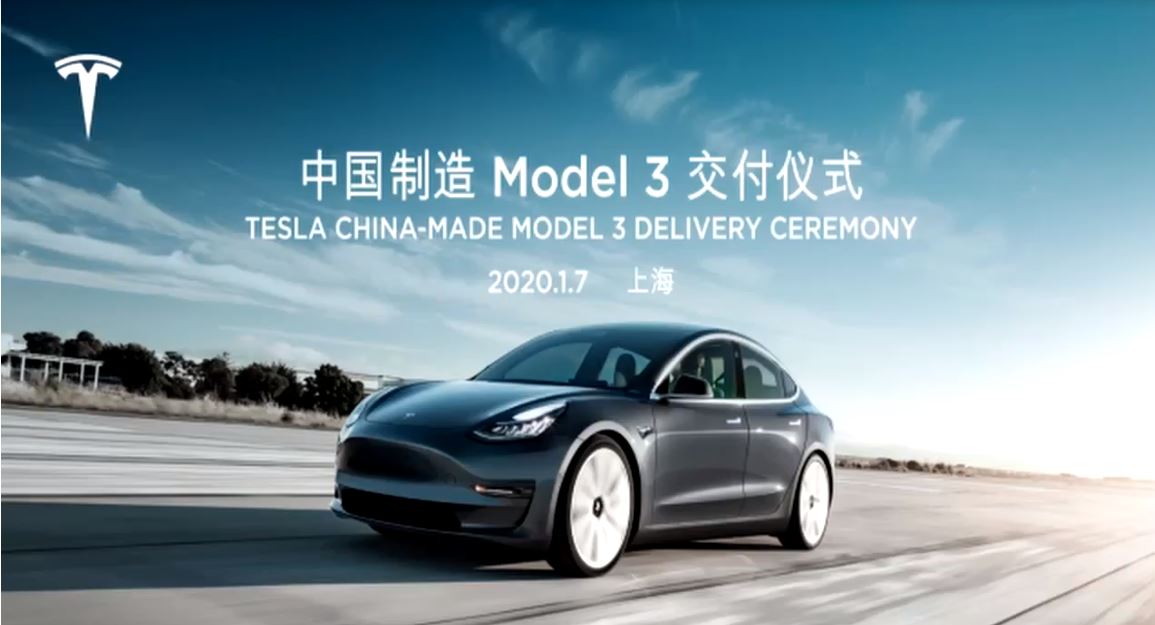
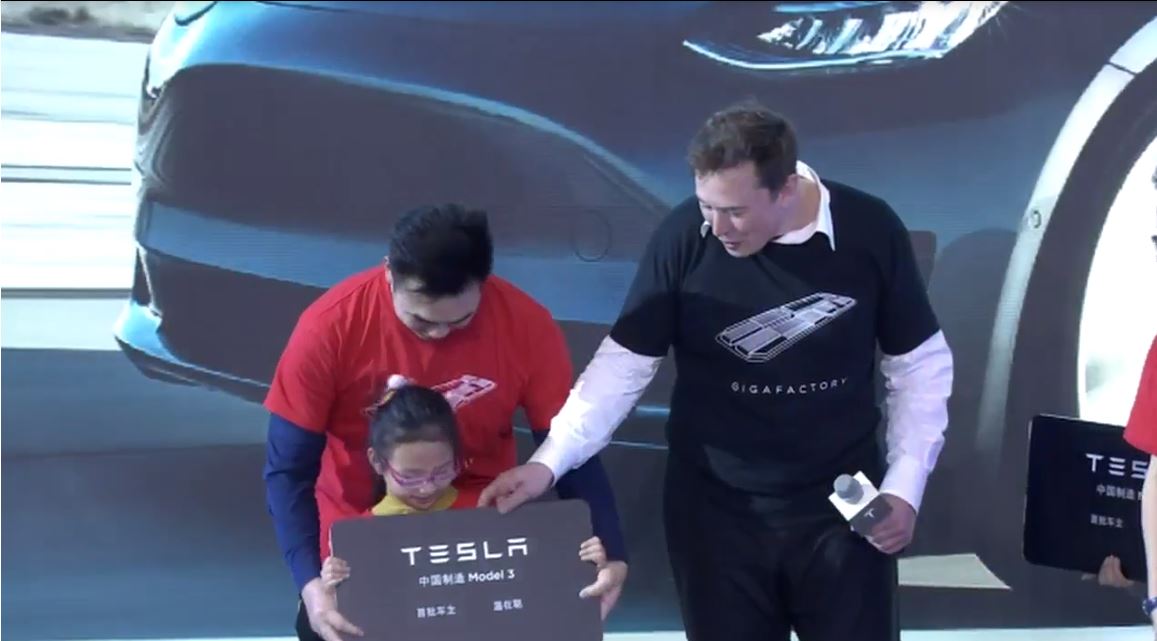
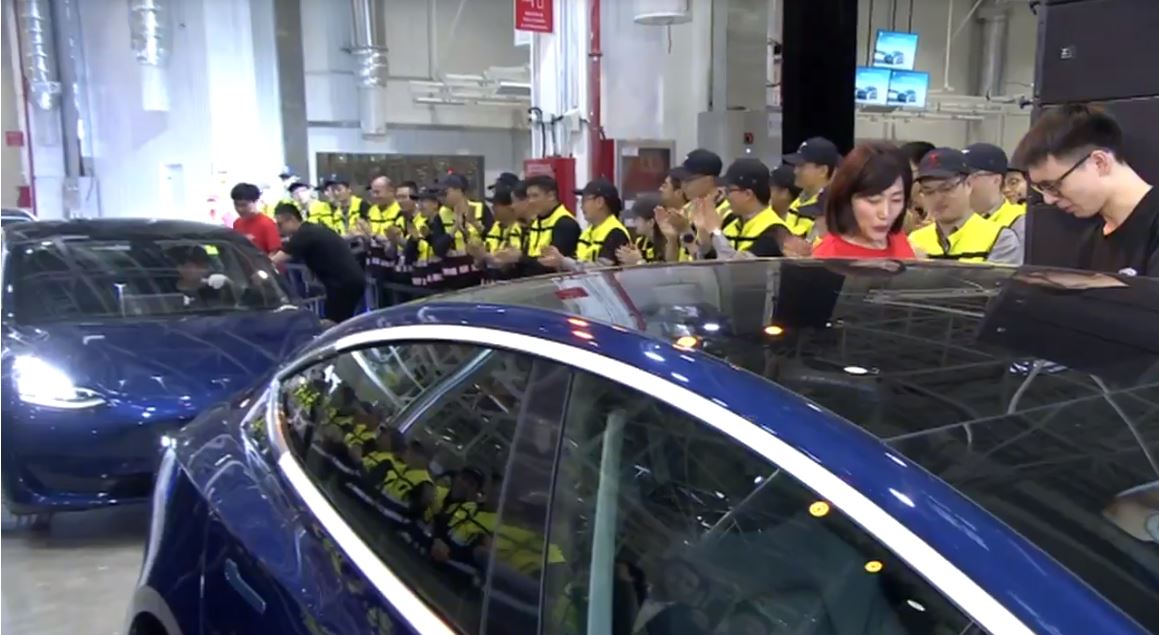
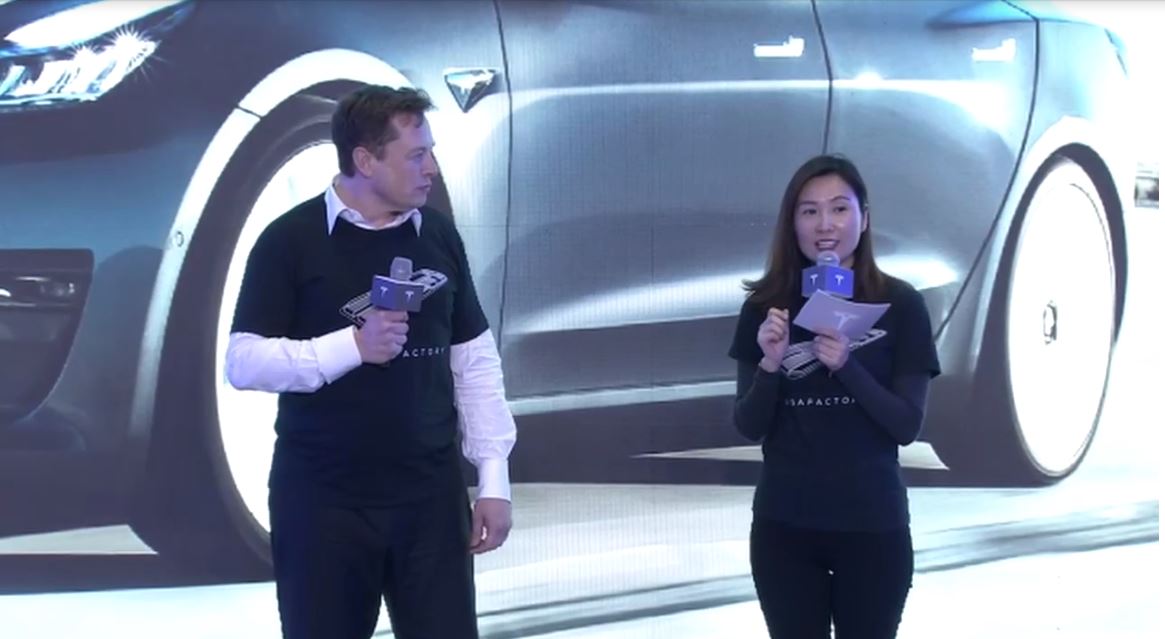

News
Tesla ships out an update for everyone that California caused
“This change only updates the name of certain features and text in your vehicle,” the company wrote in Release Notes for the update, “and does not change the way your features behave.”

Tesla has shipped out an update for its vehicles that was caused specifically by a California lawsuit that threatened the company’s ability to sell cars because of how it named its driver assistance suite.
Tesla shipped out Software Update 2026.2.9 starting last week; we received it already, and it only brings a few minor changes, mostly related to how things are referenced.
“This change only updates the name of certain features and text in your vehicle,” the company wrote in Release Notes for the update, “and does not change the way your features behave.”
The following changes came to Tesla vehicles in the update:
- Navigate on Autopilot has now been renamed to Navigate on Autosteer
- FSD Computer has been renamed to AI Computer
Tesla faced a 30-day sales suspension in California after the state’s Department of Motor Vehicles stated the company had to come into compliance regarding the marketing of its automated driving features.
The agency confirmed on February 18 that it had taken a “corrective action” to resolve the issue. That corrective action was renaming certain parts of its ADAS.
Tesla discontinued its standalone Autopilot offering in January and ramped up the marketing of Full Self-Driving Supervised. Tesla had said on X that the issue with naming “was a ‘consumer protection’ order about the use of the term ‘Autopilot’ in a case where not one single customer came forward to say there’s a problem.”
This was a “consumer protection” order about the use of the term “Autopilot” in a case where not one single customer came forward to say there’s a problem.
Sales in California will continue uninterrupted.
— Tesla North America (@tesla_na) December 17, 2025
It is now compliant with the wishes of the California DMV, and we’re all dealing with it now.
This was the first primary dispute over the terminology of Full Self-Driving, but it has undergone some scrutiny at the federal level, as some government officials have claimed the suite has “deceptive” names. Previous Transportation Secretary Pete Buttigieg was one of those federal-level employees who had an issue with the names “Autopilot” and “Full Self-Driving.”
Tesla sued the California DMV over the ruling last week.
News
Tesla workers push back against Giga Berlin unionization
“IG Metall did not succeed in Giga Berlin‘s works council election earlier today. The union share was reduced from nearly 40% in 2024 to 31% in 2026! This is a clear message by the Giga Berlin team towards an independent co-determination! The list called Giga United, led by the current chairwoman, Michaela Schmitz, received the most votes with more than 40%! Good news for Giga Berlin!”

Tesla workers pushed back against unionization efforts at Gigafactory Berlin, and over the past few years, there has been a dramatic decrease in interest to unionize at the German plant.
Gigafactory Berlin Plant Manager André Thierig announced on Wednesday that IG Metall, the European union group, saw its share reduce from 40 to 31 percent in 2026 as employees eligible to vote on the issue. Instead, the Giga Berlin team, known as Giga United, received the most votes with more than 40 percent.
BREAKING! 🚨
IG Metall did not succeed in Giga Berlin‘s works council election earlier today. The union share was reduced from nearly 40% in 2024 to 31% in 2026!
This is a clear message by theGiga Berlin team towards an independent co-determination!
The list called Giga…
— André Thierig (@AndrThie) March 4, 2026
Thierig gave specific details in a post on X:
“IG Metall did not succeed in Giga Berlin‘s works council election earlier today. The union share was reduced from nearly 40% in 2024 to 31% in 2026! This is a clear message by the Giga Berlin team towards an independent co-determination! The list called Giga United, led by the current chairwoman, Michaela Schmitz, received the most votes with more than 40%! Good news for Giga Berlin!”
There were over 10,700 total employees who were eligible to vote, with 87 percent of them turning out to cast what they wanted. There were three key outcomes: Giga United, IG Metall, and other notable groups, with the most popular being the Polish Initiative.
The 37-seat council remains dominated by non-unionized representatives, preserving Giga Berlin as Germany’s only major auto plant without a collective bargaining agreement.
Thierig and Tesla framed the outcome as employee support for an “independent, flexible, and unbureaucratic” future, enabling acceleration on projects like potential expansions or new models. IG Metall expressed disappointment, accusing management of intimidation tactics and an “unfair” campaign.
The first election of this nature happened back in 2022. In 2024, IG Metall emerged as the largest single faction with 39.4 percent, but non-union lists coalesced for a majority.
But this year was different. There was some extra tension at Giga Berlin this year, as just two weeks ago, an IG Metall rep was accused by Tesla of secretly recording a council meeting. The group countersued for defamation.
Tesla Giga Berlin plant manager faces defamation probe after IG Metall union complaint
This result from the 2026 vote reinforced Tesla’s model of direct employee-management alignment over traditional German union structures, amid ongoing debates about working conditions. IG Metall views it as a setback but continues advocacy. Tesla sees it as validation of its approach in a competitive EV market.
This outcome may influence future labor dynamics at Giga Berlin, including any revival of expansion plans or product lines, which Musk has talked about recently.
News
SpaceX President Gwynne Shotwell details xAI power pledge at White House event
The commitment was announced during an event with United States President Donald Trump.

SpaceX President Gwynne Shotwell stated that xAI will develop 1.2 gigawatts of power at its Memphis-area AI supercomputer site as part of the White House’s new “Ratepayer Protection Pledge.”
The commitment was announced during an event with United States President Donald Trump.
During the White House event, Shotwell stated that xAI’s AI data center near Memphis would include a major energy installation designed to support the facility’s power needs.
“As you know, xAI builds huge supercomputers and data centers and we build them fast. Currently, we’re building one on the Tennessee-Mississippi state line. As part of today’s commitment, we will take extensive additional steps to continue to reduce the costs of electricity for our neighbors…
“xAI will therefore commit to develop 1.2 GW of power as our supercomputer’s primary power source. That will be for every additional data center as well. We will expand what is already the largest global Megapack power installation in the world,” Shotwell said.
She added that the system would provide significant backup power capacity.
“The installation will provide enough backup power to power the city of Memphis, and more than sufficient energy to power the town of Southaven, Mississippi where the data center resides. We will build new substations and invest in electrical infrastructure to provide stability to the area’s grid.”
Shotwell also noted that xAI will be supporting the area’s water supply as well.
“We haven’t talked about it yet, but this is actually quite important. We will build state-of-the-art water recycling plants that will protect approximately 4.7 billion gallons of water from the Memphis aquifer each year. And we will employ thousands of American workers from around the city of Memphis on both sides of the TN-MS border,” she noted.
The Ratepayer Protection Pledge was introduced as part of the federal government’s effort to address concerns about rising electricity costs tied to large AI data centers, as noted in an Insider report. Under the agreement, companies developing major AI infrastructure projects committed to covering their own power generation needs and avoiding additional costs for local ratepayers.








